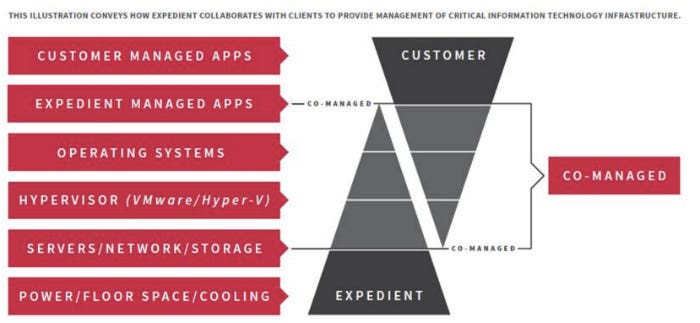The retail tech and ecommerce market is growing by leaps and bounds. So why are so few MSPs taking advantage of it?

When it comes to vertical opportunities in managed services, the health care, finance and retail industries often top the list in terms of profit margin and growth opportunity. These three industries operate under stringent regulations that force an elevated level of security and transparency. Eventually, other verticals adopt such mandates at a slower pace as their industries catch up. There’s money to be made when you’re leading disruptive innovation, even when it’s foisted upon you.
There’s also an elevated standard of user experience in industries such as these, where IT directly touches, impacts and sways customers’ buying behavior. The technological touch points especially influence existing customers, since these are the people who have been through either a subpar or excellent user experience and lived to tell about it.
Where compliance mandates and customer service meet, there are gaps to be filled by MSPs that are ready to help business owners outsource those worries.
The investment in developing such vertical-specific specialties is hefty, but it can yield results that more than reward those efforts. For instance, among MSPs that earned a place in the 2018 MSP 501 ranking list and survey, preliminary data suggests that 61 percent reported having expertise in health care. In contrast, only 42 percent of applicants that were edged out of the 501 specialized in the health-care vertical. Similarly, there’s a 13-point spread between MSPs that placed and those that didn’t in the financial-services sector (52 percent to 39 percent, respectively).
Perhaps the most underserved of these verticals is retail, which arguably has the biggest share of that compliance+customer experience pot of gold. Surprisingly few MSPs in both groups reported a retail specialization. Only 29 percent of the MSP 501 said they provide retail-specific managed services, and that number falls to 22 percent for those that didn’t make this year’s list. Considering that manufacturing, wholesale and supply chain are all racing from legacy systems to online platforms, the B2B e-commerce market holds big opportunity for service providers. These systems are often far more complex than B2C online sales solutions because of fluctuating prices and high volumes, not to mention more stringent tax and regulatory guidelines. Despite the challenges, B2B e-commerce sales are projected to grow to a $6.7 trillion opportunity by 2020.
“E-commerce is changing,” says Abby Kearns, executive director of the Cloud Foundry Foundation. “E-commerce companies are expected to be more responsive to their changing end customer needs, while also integrating into their back end systems more easily.”

Abby Kearns
Managed E-Commerce in Action
Jon Rosenson, senior vice president of strategic initiatives at managed service provider Expedient, which came in at No. 7 on this year’s MSP 501, says MSPs need to think big when building a managed e-commerce service. Sure, your local flower shop needs a system to accept online orders and track inventory and deliveries, and a partner could set the business up with a software-as-a-service (SaaS) e-commerce solution such as Shopify. The cost would be more palatable for the small business, but the flexibility in these solutions leaves a lot to be desired.
But when you start to think bigger, the opportunity grows bigger, too. Instead of the individual flower shop being an MSP’s client, the customer instead might be another service provider that has an e-commerce solution with features specific to the flower business.

Jon Rosenson
“In that case, the software would have a database of flower species, understand delivery routes, provide sales enablement for Hallmark holidays, etc.,” says Rosenson. “Our infrastructure would host that application, make sure it is always available, provide backup, optional disaster recovery, a security perimeter, and so forth.”
Considerations for E-Commerce MSPs
As discussed above, the e-commerce opportunity is vast in large part because it’s so complicated. Before diving into an e-commerce-specific business, make sure you keep the following top-of-mind.
Security and Compliance
First and foremost, MSPs that work in e-commerce have to make security and compliance their top priorities. The retail sector is governed by the Payment Card Industry Data Security Standard (PCI DSS), which dictates how to process, store and transmit users’ credit card information, and it touches every part of the payment process. PCI compliance is complicated, and fines for violating its rules can be severe. Some MSPs like Expedient provide third-party Qualified Security Assessor (QSA) attestation for PCI related to the infrastructure services supporting such clients.
“We also provide a variety of complementary managed services that support the security and compliance needs of these customers,” says Rosenson. “For example, [we] provide managed services such as operating system management and monitoring which encompasses monthly vulnerability patching, antivirus definition updates, and real-time monitoring notification.”
Just like any IT solution, providers can easily up-sell customers on additional services. In addition to the above, Expedient also provides discrete services such as managed firewall, two-factor authentication, encryption of data at rest, intrusion detection, vulnerability scanning and a variety of related managed services aimed at maintaining compliance.
Omnichannel
MSPs’ e-commerce clients want more than just a system to process payments. They need to make sure their customers have a seamless experience no matter what digital channel they’re interacting through. If an MSP can set up a retail customer with a solid e-commerce portal and payment-processing solution, that’s great. But that service provider will lose business to MSPs that use advanced technology to improve the customer experience, whether it’s navigating a website, making purchases on mobile devices or leaving reviews and testimonials on social media.
Next-level technology such as machine learning/artificial intelligence (AI) can make a big difference both in a business’ performance and in its C-suite’s satisfaction with their MSP. Such solutions can collect, track and interpret real-time customer data and automatically respond to individual consumer behavior. If a buyer’s experience isn’t at least somewhat personalized to them, a company will probably lose that buyer to another retailer that’s leveraging AI. Twenty-eight percent of companies already utilize AI, and another 41 percent have plans to integrate it in the next two years.
Similarly, mobile commerce capabilities are a critical element to an online retailer’s success.
Mobile commerce will account for nearly half (45 percent) of e-commerce by 2020. E-commerce has to prioritize a mobile-first customer experience that’s a responsive design and rich with features like push notifications, alerts based on geolocation, auto-completed forms and one-click payments.
Scalability
“MSPs need to consider that the solutions they are providing today need to be flexible enough to adapt to evolving technology needs from their customers,” says Kearns. “Their customers are writing more of their own applications. They are going to need a platform that offers them the ability to create, iterate and deploy those new applications to production as quickly as possible.”
Applications are where MSPs today can see big profit margins, so it’s essential to create a system that’s robust enough to support and integrate with applications both now and in the future. Whatever the client’s need is, there’s an app for that. SaaS applications are quick to spin up and more straightforward to manage. Most importantly, they’re much less painful to scale, and the cost per month for subscriptions tends to be easier for customers to swallow than a big lump-sum payment.
“One of the key outcomes that we help customers achieve is cost control insomuch as we provide a predictable monthly subscription fee for our services,” says Rosenson. “Our process is to work with clients to understand their needs such that unexpected costs would only be a consideration in an unexpected event, [for example if] business ramps up faster than expected so financial metrics on the revenue side support additional cost on the expense side.”
Don’t Try to be Everything to Everybody
The biggest bear trap Rosenson sees is MSPs trying to be all things to all people. That kind of business model is simply unsustainable in the long-term as clients’ needs change and their businesses grow. In order to create a scalable MSP that delivers clear and quantifiable value, partners have to make some hard decisions about where they want to play. Service providers have to decide their points of demarcation and then stay within those bounds. It takes discipline, he says, and a rigorous attention to where to draw those lines.
Expedient, for instance, is considered a provider of infrastructure as a service (IaaS). The MSP stays away from the core application layer since those elements tend to be customer-specific and resource-intensive to manage. If an MSP decides to expand its services, it can’t do so casually. It needs to thoroughly and carefully consider what circumstances such an expansion would make sense for its business model and future growth strategies.
“So, in effect, we’ve made a business decision to take responsibility for specific elements of a customer’s infrastructure, including shared responsibility,” Rosenson says. “We use the illustration copied below to convey the approach, which you can also see on our server management and monitoring page.”

The e-commerce opportunity is big and growing bigger. As outlined above, it’s a more complex niche than some others, with complicated considerations sometimes intimidating implementations and integrations. Rosenson, however, says at the end of the day, e-commerce is all about security and availability.
“Keep transactions secure. Make sure they go through every time.”
If an MSP’s solutions do both, everything else is just high-margin gravy.
About the Author(s)
You May Also Like


